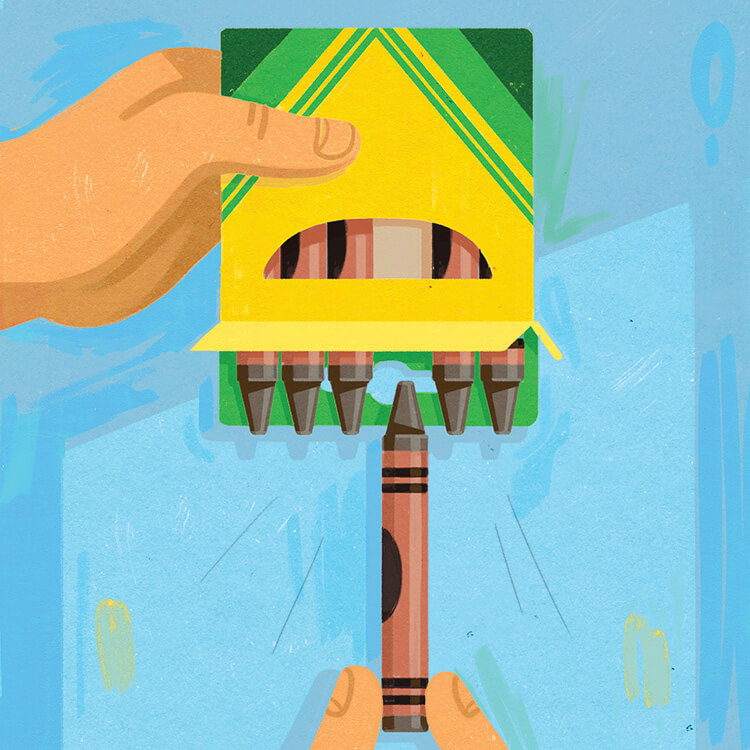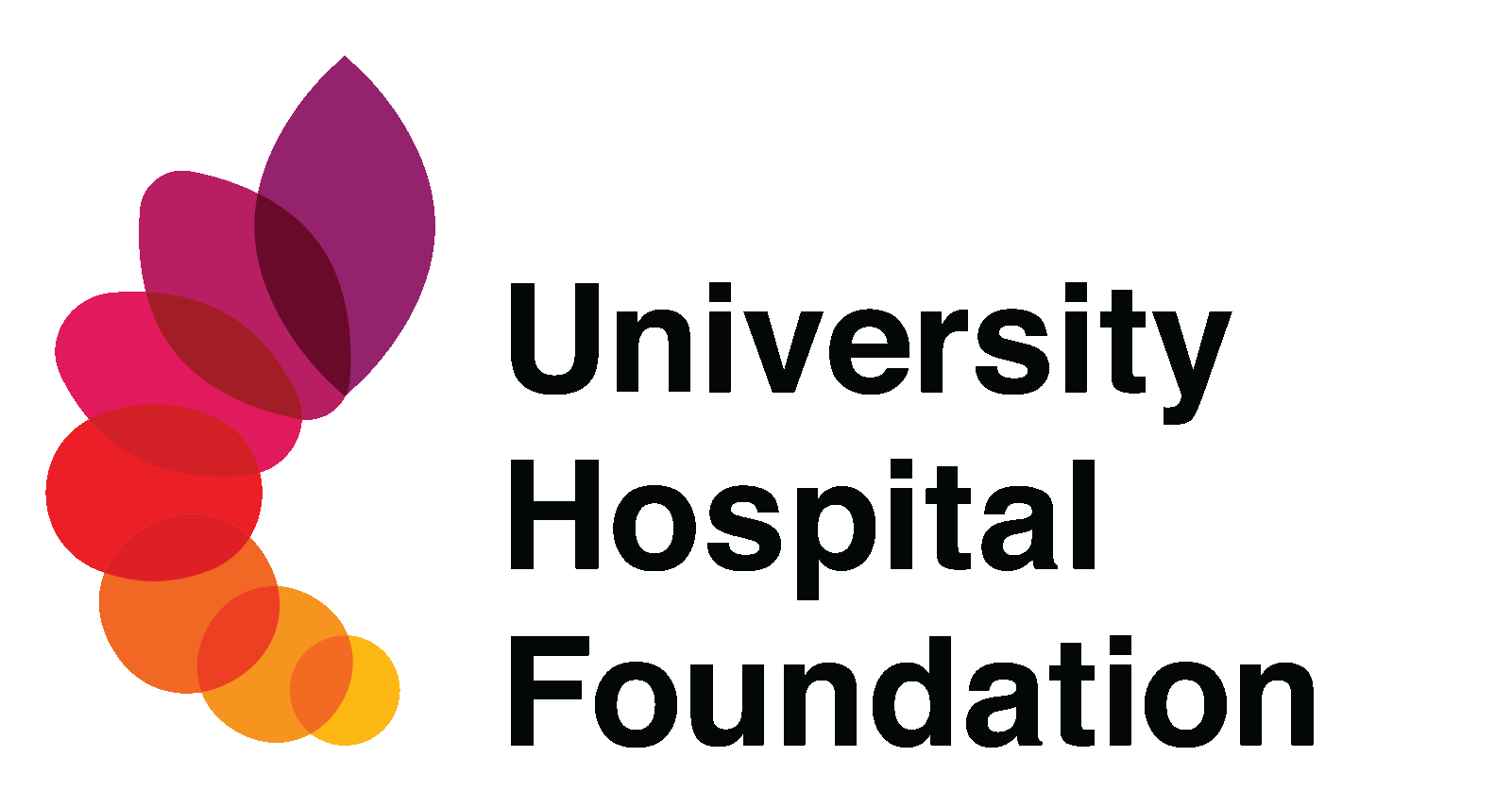S--t happens
At first mention, the concept of a fecal transplant might conjure up a wealth of emotions in prospective patients, ranging from curiosity and disbelief to squeamishness and disgust. But, for patients suffering from a potentially life-threatening Clostridioides difficile, or C. diff, infection, these procedures may hold the key to their recoveries.
Often by the time C. diff patients arrive in Dr. Dina Kao’s clinic at the University of Alberta Hospital, they’re desperate for relief. Recurring episodes of C. diff can have a devastating impact on a patient’s life, causing symptoms ranging from severe diarrhea and cramping to weight loss and even kidney failure.
“Their quality of life really goes down the drain,” says Kao. “They lose weight, they have no appetite and no energy. Or we see patients present with severe anxiety and depression. It takes a huge toll, not just on their physical health, but on their psychological wellbeing as well.”
The human body normally contains an abundance of bacterial cells, which, when kept in balance, allow for healthy day-to-day functioning. In C. diff patients, the bacterial balance has been thrown off, leading to inflammation and illness. Kao notes that in more than 98 per cent of the recurrent cases she sees, the problems can be traced to routine antibiotics.
For Jane MacDonald’s* father, John* (*names have been changed due to privacy request), the problems began shortly after he was placed on antibiotics for a urinary tract infection (UTI). Although he recovered from the UTI, his condition deteriorated as the C. diff bacteria proliferated. Four months, five hospital admissions and a 40-lb. weight loss later, the MacDonalds were anxious to try anything.

“C. diff really took a toll. By the fifth time my father was admitted to hospital, his care had turned to palliative, and we were starting to make arrangements for his funeral,”
Fortunately, for patients like John, Kao and her University of Alberta colleagues have spent the last seven years developing the FMT program at the University of Alberta Hospital, work that has been supported from day one by donors like LeRoy Sonnenberg, whose life was also saved by FMT, and his wife, Karen — through the University of Hospital Foundation. Today, the University of Alberta Hospital is one of few institutions in Canada to perform fecal transplants, treating an average of 80 C. diff patients annually. And, the program has expanded to include all of Alberta Health Services.
For the MacDonalds, it made all the difference.
“It was the best thing that could’ve happened,” says Jane. “It was so successful and so immediate. To be perfectly honest, we were shocked at how well it worked, and how quickly.”
Simple Procedure
Fecal Microbiota Transplantation, Kao explains, is a process that is as simple as it sounds: The transfer of fecal matter from a healthy donor into the colon of a sick patient. Although the treatment has been explored as a treatment for a variety of conditions, it is considered to be extremely effective for recurrent C. diff infections, delivering near-instant relief.
“Our success rate within our program is at least 90 per cent with a single treatment,” says. Kao. “We’ve done quality of life assessments before and after fecal transplants, and the results are impressive. You definitely see this amazing reversal.”
Since the program was established in 2013, Kao and her colleagues have explored a range of delivery methods for fecal material, including retention enema, colonoscopy or endoscopy. Each method offers its own advantages, as some may be less invasive but others may be more effective due to their ability to deliver higher amounts of transplant material. The least invasive, yet still one of the most highly effective methods, involves the use of capsules containing treated fecal matter, which are then frozen and administered orally to patients.
In 2016, Kao and her team won the President’s Excellence Award for Outstanding Achievement in Innovation and Research Excellence from Alberta Health Services.
“A few years ago, we completed a study to compare the success rates of transplants if done by colonoscopy versus these frozen capsules,” says Kao. “What we found was that it was essentially the same: 96 per cent with a single treatment. This is about as high of an effectiveness rate as we can ever see in medical trials.”
But as is the case for any physician on the frontiers of medicine, Kao’s work has only just begun. The exact mechanisms of how FMT works are still not yet well understood, so she and her colleagues at the University of Alberta are working with peers around the world to narrow down the possibilities.
“Put simply, stool is a very complex mixture. We don’t know what exactly is in it, or why it works. We’re essentially just throwing everything at our patients in hopes it will cure their illness,”
So, over the last couple of years, Kao and her colleagues have been looking for a more targeted FMT treatment. Working with researchers across Canada and around the world, they’re tracking longer term data on donors and recipients, and attempting new methods to administer transplants.
“We know that our current therapy is not perfect. It’s far from it. But without doing this research to advance our knowledge and our thinking, we won’t be able to improve our patient care,” she says.
One of the most promising new treatment ideas Kao and the FMT team are working on is a clinical trial, in which patients ingest a compound of 40 different strains of bacteria isolated from a healthy stool donor. The bacteria are then freeze- dried and encapsulated, with patients ingesting them similarly to taking a probiotic supplement. The University of Alberta Hospital is one of two centres in the world working on this potentially ground-breaking trial. And although the study is in its infancy, results thus far are promising.
“Again, it’s just a more targeted treatment. In this study, you know exactly what you’re giving to patients. It’s just 40 strains of bacteria, nothing else,” Kao says. “So far we have treated six patients and it seems to be working.”
Although the implications for this research are most immediately applicable to those suffering from C. diff, Kao believes it has the potential to affect many other patients as well. Dysbiosis, or this disturbed gut bacteria population, has been linked with conditions ranging from obesity and metabolic syndromes to autism and colon cancer. Kao is hopeful that these trials will help to shine light on these conditions and possible new treatments.
“Just about every condition is linked where there is some disturbed bacteria population. But we don’t know is it a cause or an effect. We see it in a lot of the neurodegenerative conditions, Multiple Sclerosis for example, rheumatoid arthritis, or even chronic kidney disease, we see that gut bacteria just is not quite right compared to in a healthy individual,” she says. “Our hope is that this research will not only give us a more refined therapy for C. diff, but also some insight into other conditions if we can narrow down which mechanisms work and how they work.”
For example, Kao notes that several clinical trials for patients with ulcerative colitis have shown that fecal transplants are an effective treatment option 30-40 per cent of the time. While these numbers may sound low, they are actually on par with current treatments available for ulcerative colitis patients.
Although the full implications of Kao’s innovative research are yet to be seen, she is confident the work she and her colleagues are undertaking is worthwhile.
“I never saw myself as a researcher. I went into medical school thinking I was just going to do clinical medicine, and just see patients,” she says. “But now I cannot imagine a career without research. It truly is the only way for us to advance patient care.”
Share this article
Facebook
Twitter
LinkedIn
